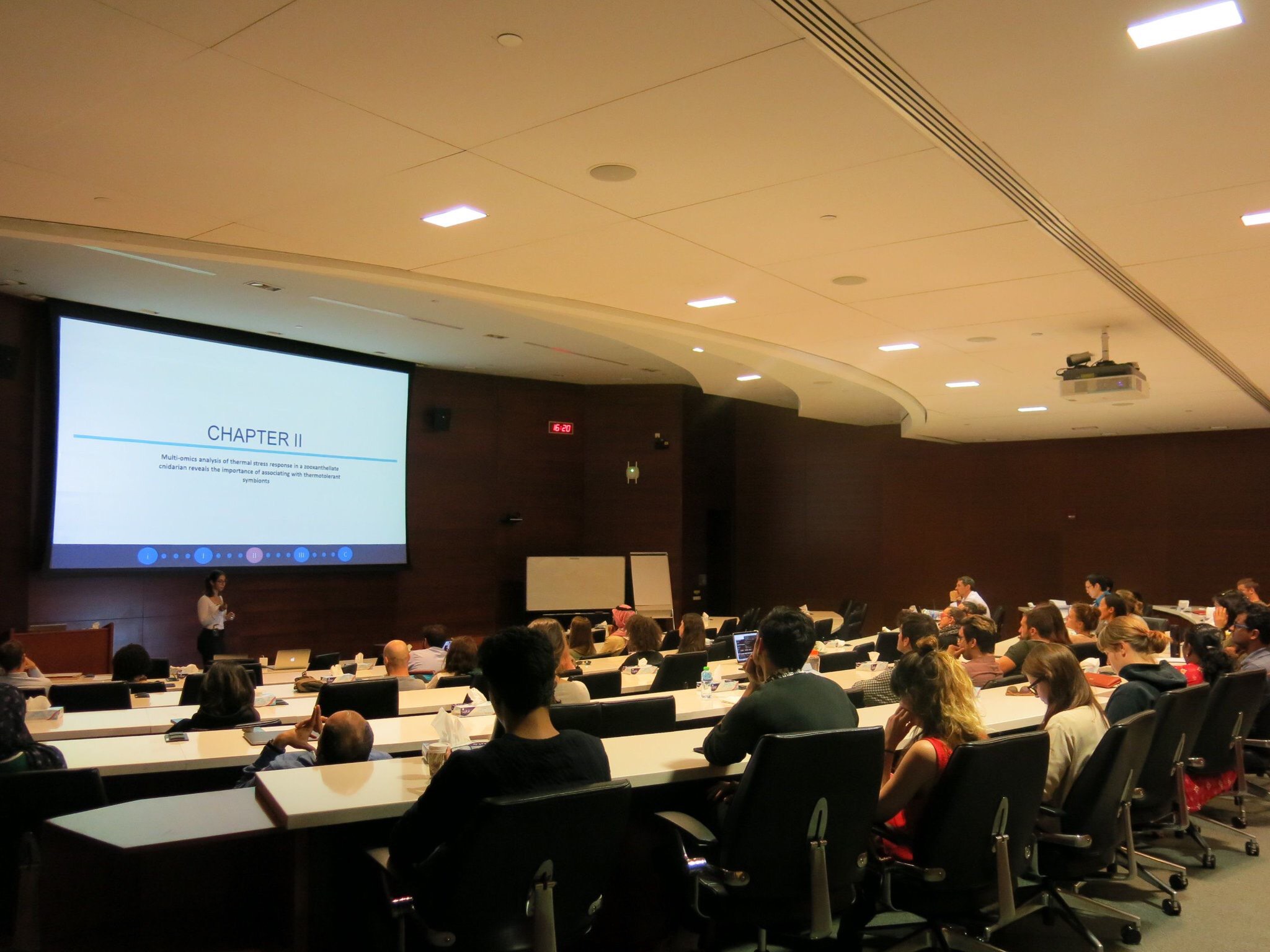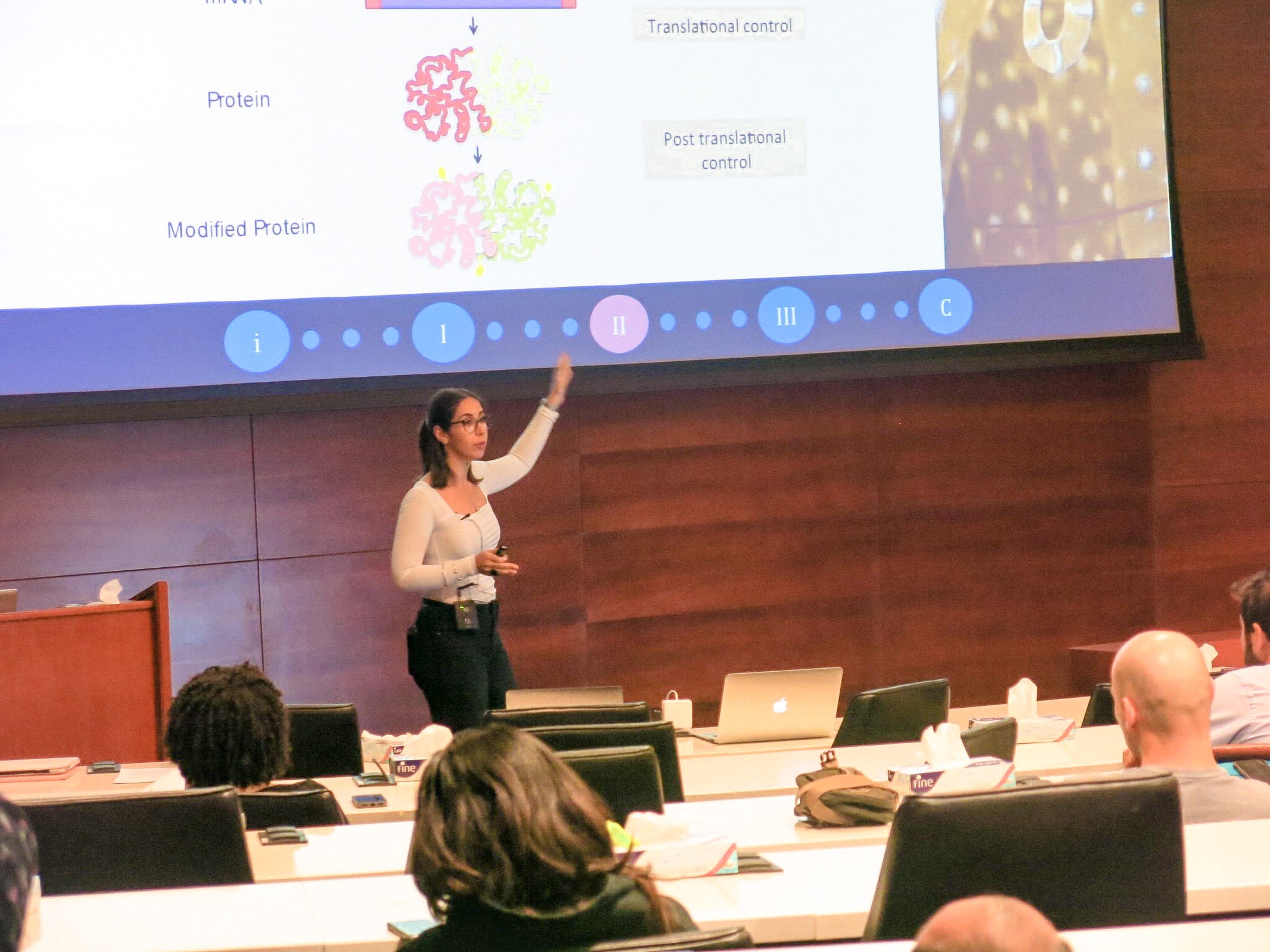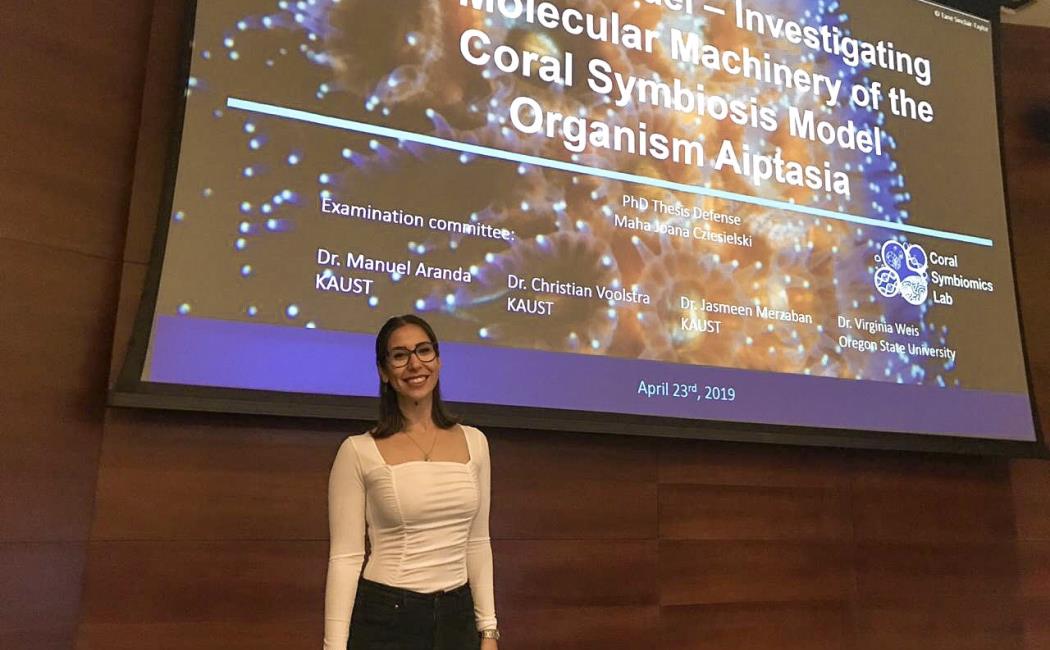In her thesis, she applied transcriptomic, proteomic and epigenomic tools in Aiptasia, with the aim to assess the dynamics of symbiosis and thermotolerance. Heat stress studies, on Aiptasia’s originating from geographically distinct regions, provided insight into the cnidarian-algae symbiosis mechanisms and the role of metabolic compatibility in symbiosis. Furthermore, her findings elucidated that associating with thermotolerant algae can improve the cnidarian host’s tolerance, potentially acting as a form of local adaptation. Finally, she investigated the role of epigenetic mechanisms in cnidarian symbiosis was by optimizing Chromatin Immunoprecipitation (ChIP) and establishing the genomic landscape of histone 3 lysine 9 acetylation (H3K9ac) in Aiptasia.
Her research has provided further insight into currently important questions regarding cnidarian symbiosis and thermotolerance, as well as a basis for future research development. Maha’s findings have also extended the molecular toolbox of Aiptasia, further establishing its role as a cnidarian-symbiosis model system. The overarching conclusion of her dissertation work is that each partner plays a role in conferring thermal resilience to the holobiont, however, that it is not simply the sum of both partners, but also their interactions that determine the overall success of the holobiont.

Imprints of her defense talk :-)



